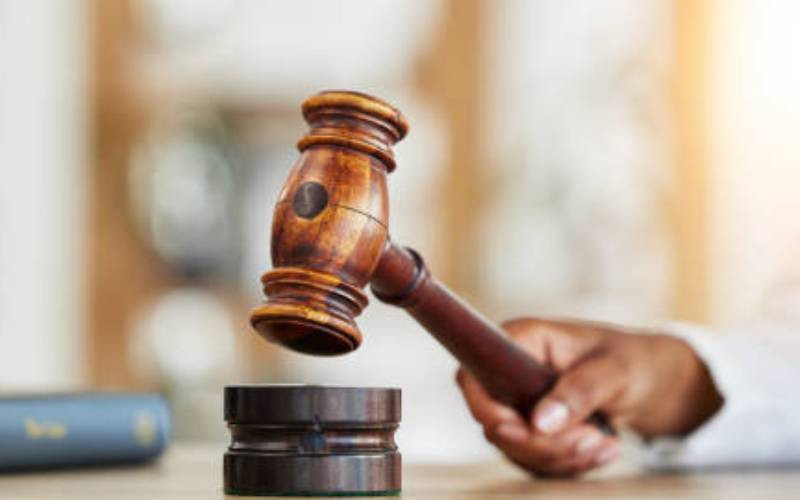Time is like an empty container into which things and events may be placed; but it exists independently of what (if anything) is placed in it. It is the continuous passage of existence in which events pass from a state of potentiality in the future, through the present, to a state of finality in the past. Time is what ensures everything does not happen at the same time.
Time has been a central theme in the filing, hearing and resolution of electoral disputes in Kenya from the last General Election.
The Supreme Court completed the Presidential petitions in 14 days. The High Courts and the Courts of Appeal heard and determined all election disputes brought before them within six months. This strict compliance with the requirement for expeditious hearing is admirable and commendable.
Other dimensions of time have come into play in the election petitions. In the Presidential petition an affidavit by a petitioner was struck out by the Supreme Court because it had been filed after the seven-day period stipulated by the Rules of the Court. The Supreme Court held that it was mandatory to comply with the time limits.
The Constitution requires election petitions challenging the election of Governors, Senators and Members of Parliament to be filed within 28 days of the announcement of the results. Parliament enacted a provision under the Elections Act stipulating that these 28 days started running from the date the results were published in the Kenya Gazette by the IEBC.
The Courts held that any election petition filed relying on the provisions of the Elections Act and not the Constitution was incompetent.
Consequently, a number of election petitions were dismissed by the Supreme Court including those filed against Governor Hassan Joho and Member of Parliament Mary Wambui. Though Ferdinand Waititu was successful in his appeal against the election of Governor Evans Kidero, his victory was overturned by the Supreme Court. Time was at the centre of the battle before the Supreme Court. In this case, the Supreme Court held that Waititu ought to have filed his record of appeal in one day.
The law allowed him 30 days to move the Court of Appeal. Part of the documents he required to file his appeal were from the High Court. These documents were prepared for 29 days and were only ready for collection a day before the lapse of the 30 days. Even in these circumstances that were beyond the control of Waititu, the court bowed to time and shut him out.
The Supreme Court castigated the Court of Appeal for applying one of its rules to extend time for Waititu’s petition. Two of the judges of the Court of Appeal felt that it was unjust to punish him for the delay caused by the registry of the court.
It is only the Supreme Court that has allowed parties to file petitions arising from election grievances out of time. Though they filed their petitions after the 30 days required by its rules, the Supreme Court extended time to save the petitions, of among others, Mary Wambui and Nick Salat. The rule invoked by the Supreme Court to save these petitions, was similar to that the Court of Appeal used in an attempt to save Waititu’s petition.
Have the constitutional and legal reforms of the handling of election petitions been successful? The best test of the quality and reach of the reforms is whether the electorate still have faith in the electoral system and the fair resolution of disputes from the electoral system as they did when the Constitution was promulgated. Only time will tell.
 The Standard Group Plc is a
multi-media organization with investments in media platforms spanning newspaper
print operations, television, radio broadcasting, digital and online services. The
Standard Group is recognized as a leading multi-media house in Kenya with a key
influence in matters of national and international interest.
The Standard Group Plc is a
multi-media organization with investments in media platforms spanning newspaper
print operations, television, radio broadcasting, digital and online services. The
Standard Group is recognized as a leading multi-media house in Kenya with a key
influence in matters of national and international interest.
 The Standard Group Plc is a
multi-media organization with investments in media platforms spanning newspaper
print operations, television, radio broadcasting, digital and online services. The
Standard Group is recognized as a leading multi-media house in Kenya with a key
influence in matters of national and international interest.
The Standard Group Plc is a
multi-media organization with investments in media platforms spanning newspaper
print operations, television, radio broadcasting, digital and online services. The
Standard Group is recognized as a leading multi-media house in Kenya with a key
influence in matters of national and international interest.








